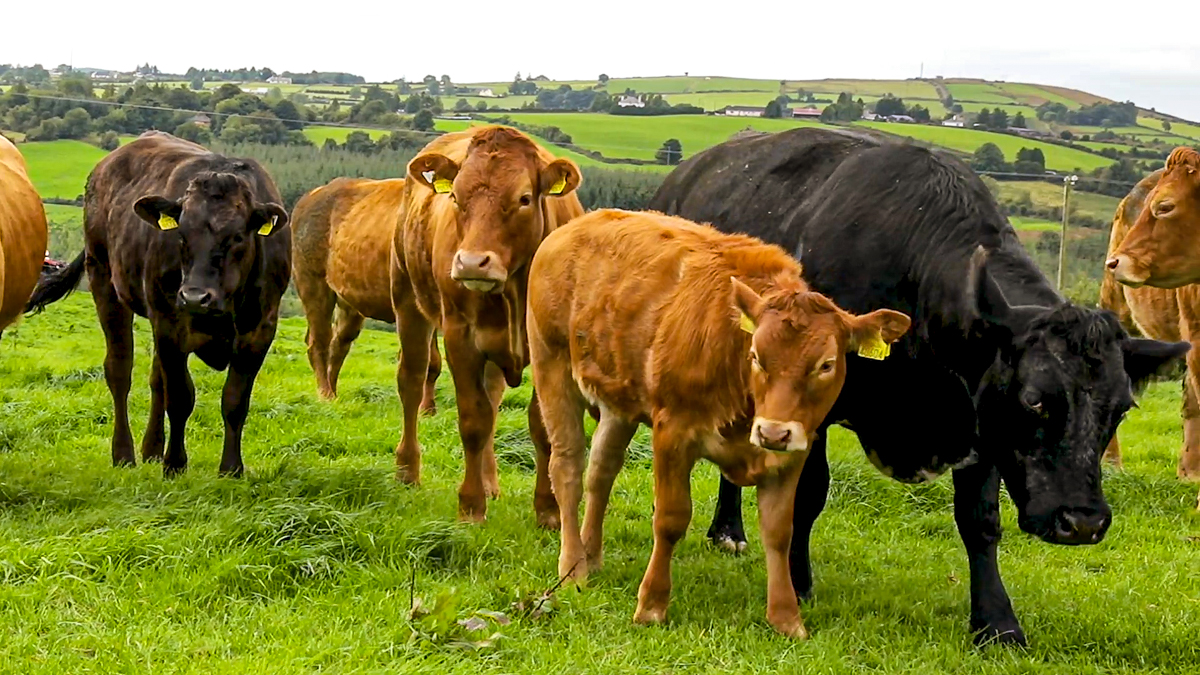A total of 488 farmers have had to repay monies issued under the Beef Data and Genomics Programme (BDGP) either for non-compliance or because they had withdrawn from the scheme, according to Minister for Agriculture, Food and the Marine Charlie McConalogue.
The minister was responding to a parliamentary question from Sinn Féin agriculture spokesperson Matt Carthy regarding the number of farmers who received letters seeking repayment and the average amount sought per county, as well as the reasons for sending the letters.
In his response, Minister McConalogue provided a list with the number of herds per county and the average amount overpaid.
As can be seen in the table (above), Galway had the highest number of herds which had to repay money to the department, with 52 such herds; this was followed by Cork, with 43 herds; and Mayo on 36 herds.
On the other end of the scale, Dublin had just two herds affected, making it the county with the lowest number of herds. This was followed by counties Waterford and Wicklow, which each had six affected herds.
The counties with the lowest amounts to be repaid on average were counties: Sligo (€943.14); Donegal (€970.72); and Mayo (€984.32).
BDGP Payments
“BDGP I and II provide for annual payments to participating farmers for the completion of defined actions as set out in the terms and conditions of the scheme,” Minister McConalogue said, in his response.
“Overall payments have amounted to €215 million,” he explained.
Overall payments have amounted to €215 million. To date in 2019, 22,957 participants have completed the required actions to generate €41.47 million in payments.
“These schemes are co-funded by the EU.”
Continuing, the minister said: “They represent a significant commitment for participating farmers over the duration of the programmes, and it is inevitable that some participants will seek to withdraw at some stage for a variety of reasons.
Reasons for non-compliance
“A significant proportion of withdrawals each year are due to reasons such as ill health, and in such cases force majeure, as provided for by EU regulations and in the terms and conditions of the programmes, may be applied with no recoupment of monies paid.
“However, in a number of cases annually, withdrawals are due to other reasons that will require any monies paid over the course of the programme to be repaid in accordance with the regulations.”
The minister noted that, in some of these cases, the participant will have requested to withdraw and will have been made aware of the implications of withdrawal from the programme at this stage.
In the remaining cases, participants will have been removed from the programme as they have repeatedly failed to meet key requirements of the programme.
“In such cases, the participant will have received correspondence enquiring as to whether they wished to continue in the programme and, if so, advising them of the actions they needed to take in order to avoid being removed.
“Where no reply was forthcoming or where the non-compliance continued, the participant was removed and my department have made arrangements for monies paid over the course of the programme to be repaid in accordance with the regulations,” Minister McConalogue concluded.

